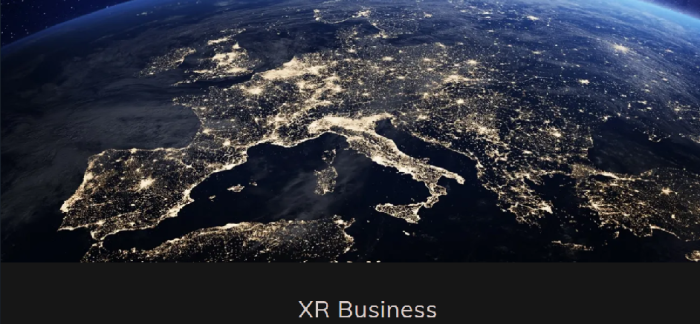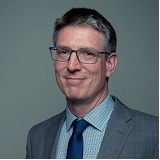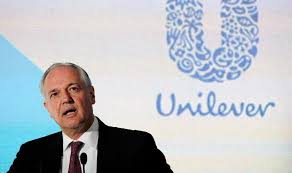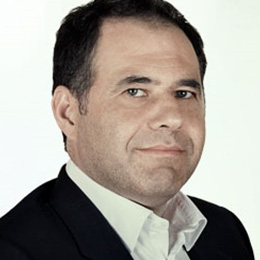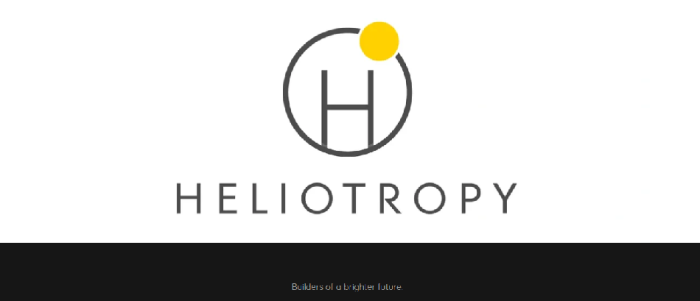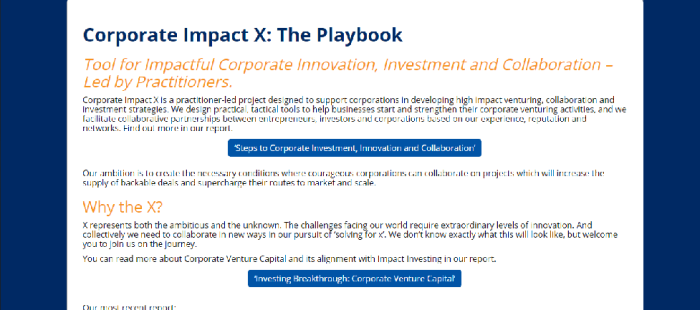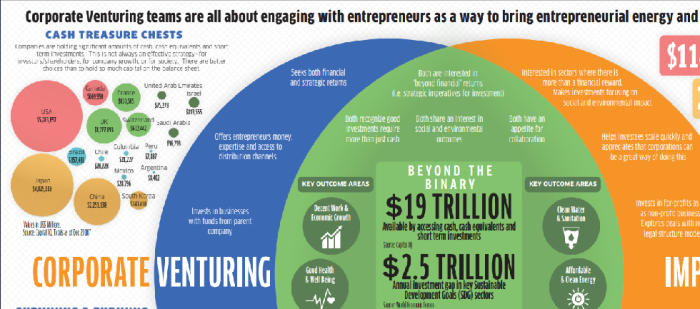Aug 24
20200
Celebrity [Capitalism | Humanitarianism | Neoliberalism]
Collectively.org Craig Kielburger Dow Chemical Holly Branson Jeff Skoll KPMG Marc Kielburger MeToWe Microsoft Richard Branson Skoll Foundation UN UN WE Day Unilever United Nations Virgin WE WEconomy White Savior Complex World Economic Forum Young Global Leaders Youth Exploitation
Justin Trudeau’s Billion-Dollar Scandal Is a Story of Power, Branding, and Charity
July 22, 2020
By Justin Ling
“In Justin Trudeau, WE Charity had a prominent booster. In WE, Justin Trudeau had a powerful platform popular with young people.”
It’s Prime Minister Justin Trudeau’s summer scandal. He and his finance minister are under investigation from an ethics watchdog. Two Parliamentary committees have started investigating the affair and Trudeau will testify.
In the middle of it all is a $912 million contract, awarded without competition to the Canadian-founded WE Charity, a household name thanks to a powerful origin story that has morphed into a huge youth-oriented movement with celebrities like Meghan Markle and Prince Harry attached.
It’s an organization with close ties to the prime minister himself. The scandal unfurled as it was revealed Trudeau’s own family received large speaking fees from the organization and while Finance Minister Bill Morneau’s daughter worked at the charity.
“I made a mistake in not recusing myself,” Trudeau said.
Trudeau himself announced the Canada Student Service Grant program, which would award grants to students and youth for doing volunteer work amid the economic slowdown caused by the COVID-19 pandemic. WE would have earned between $19.5 million and $43.5 million for just running the program. WE has already withdrawn from its government contract with a promise to “return to its roots” of international development.
From the outside, it may seem like a very Canadian scandal: Money for a charity stymied by an alleged ethical lapse caused, in part, by the prime minister’s famous mother being paid to speak to legions of teens.
Dig a little deeper, and this scandal, Trudeau’s third such ethics investigation, says an awful lot about both his government and the WE organization.
VICE News reviewed hundreds of financial disclosure documents and internal presentation decks, consulted a forensic accountant regarding WE’s books, and spoke to several past employees about how the charity—and its less-understood corporate arm—does business.
As VICE News started asking questions about WE’s financials, WE announced it would be reorienting its charity and business divisions, acknowledging that its years of rapid expansion has led to a “organizational structure that is more complicated than it needs to be.”
At the centre of this scandal is the story of WE, a unique charitable-corporate hybrid, and its symbiotic relationship with the prime minister.
Friends in high places
The WE Charity origin story is the stuff of legend. A 12-year-old Craig Kielburger, per the WE account, was flipping through a newspaper in 1995 in search of the comics. He happened upon an article about a 12-year-old Pakistani labour rights activist, Iqbal Masih, who had been murdered.
“Craig convinced a handful of Grade 7 classmates that together they could make an impact, and WE Charity was born,” WE writes on their website. Soon, his older brother Marc was in on the family charitable business.
They called the organization Free the Children (it would be renamed WE Charity in 2016), and they set out to do the kind of altruistic development that was du jour in the late 1990s—building wells, schools, and clinics for the underprivileged in the Global South. On a tour of East Asia, Craig would cross paths with then-prime minister Jean Chretien, whom he challenged to take a stand against child slavery.
The inspiring story drove international attention, and donations. But international development is a saturated market—Oxfam, Unicef, World Vision, and a host of others have been doing this work for decades.
The Kielburgers pioneered a new way of financing their charitable efforts: ME to WE Social Enterprises. It would be, according to their website, “a new model to support the long-term charitable goals of WE Charity.” This related corporate entity would organize trips, sell sustainably made goods, run events, and donate much of its profits back to WE Charity.
For about $5,000, students could fly to various destinations in Central and South America, Africa, and South Asia and stay at WE ranches and facilities. The trips mixed the air of a sleepaway camp, focusing on team building and leadership, while also offering day trips where students would contribute to building schools or wells. WE would eventually start offering corporate retreats as well.
Those trips faced criticism familiar to other so-called “voluntourism” organizations—that poorer communities need investment and opportunity, not privileged children from North America and Europe to contribute their unskilled labour. WE brushed the criticism aside. “When done properly and in partnership with communities, trips can be beneficial,” its executive director once wrote.
ME to WE expanded to run WE Day, which blends stadium-sized motivational speaking tours with the vibe of a children’s day camp. Celebrity cameos have included Kendrick Lamar, the Dalai Lama, Martin Sheen and Al Gore. ME to WE opened shops, selling sustainably made goods. It opened WE Schools, which provided slickly made, development-minded curricula to teachers.

An internal WE document.
WE’s stock rose steadily through the 2000s and early 2010s, and it incorporated its charity-corporate model in the United States and United Kingdom. Both Kielburgers were awarded the Order of Canada. It published books with contributions from Richard Gere and Oprah. 60 Minutes profiled the brothers.
The organization is not outwardly political. Its U.K. board of directors boasts a Liberal Democrat lord and a Conservative Member of Parliament. But in Justin Trudeau, it had an early champion. He appeared at the first-ever WE Day in 2007, when he was running for Parliament for the first time. He appeared again after he was elected in 2008, per a list compiled by iPolitics.
Just days after he spoke at WE Day Toronto 2012, Trudeau launched his bid to lead the Liberal Party of Canada. Craig Kielburger contributed $1,200, the maximum allowed, to Trudeau’s campaign.
When he became prime minister in 2015, one of Trudeau’s first public events was WE Day Ottawa.
Trudeau wasn’t the only one in the family joining WE Day. Trudeau’s partner, Sophie; mother, Margaret; and brother, Sacha, all spoke at various WE Days. Sophie Grégoire Trudeau even co-hosted a WE podcast. Canadaland and CBC reported that Me to We paid $312,000 for Margaret Trudeau’s appearances, and $40,000 for eight engagements with Sacha Trudeau. The prime minister was, according to the government, not paid for any of his appearances.
As Trudeau’s family became functional ambassadors for the organization, the government of Canada began an enthusiastic WE partnership.
Before his election, Ottawa had paid less than a million dollars in grants to WE. After Trudeau assumed office, that changed.
In 2016, Heritage Canada awarded WE Charity $1.5 million to participate in the lead-up to Canada’s 150th anniversary, as part of a program to “commemorate and celebrate historical figures, places, events, and accomplishments of national significance.” As part of that program, WE put out a video prominently featuring the prime minister himself.
VICE News asked if any Government of Canada money was spent on that ad. WE said it didn’t know.
“We are getting a significant number of requests from media at this time,” a spokesperson said. “While we remain committed to providing as much information as possible, we are still in the process of gathering and reviewing our internal records of contracts of years past in order to fully cooperate with various inquiries from official sources to which we are legally required to respond.”
When Canada Day rolled around, the Kielburger brothers were featured heavily at the Parliament Hill celebrations. Days later, at the WE-branded celebrations, Trudeau graced the stage.
Ottawa offered WE Charity non-competitive and sole-sourced contracts, too, for “management consulting” or “public relations services.”
Overall, the Government of Canada paid WE Charity and ME to WE more than $5.8 million.
On Wednesday, Finance Minister Morneau told a House of Commons committee that he and his family accepted invitations by WE to visit their high-end camps in Kenya and Ecuador. There, they lent a hand in building nearby schools. While the committee seized on some $40,000 in expenses that Morneau did not reimburse WE for, the trips say so much more about just how close WE and the Trudeau government really are.
A cash flow crunch
As WE became a household name for many, its finances showed signs it had expanded too fast.
In 2017, the Canadian arm of WE Charity posted a $3.8 million surplus, thanks to more than $45 million in annual donations and $10 million in private grants.
By 2019, though, the charity fell into the red, according to WE Charity’s unpublished audited financial statements provided to VICE News. Donations and grants stayed mostly flat, but spending rose rapidly. The charity posted a $2.3 million deficit, plus an additional $4 million in bank loans.
That has all the hallmarks of a “cash flow crunch,” says Kate Bahen, the managing director of Charity Intelligence, an organization devoted to analyzing the financials of Canadian charities. She obtained and analyzed WE Charity’s 2019 financial statements.
The Government of Canada was there to help, however. Three days after the WE Charity fiscal period ended in September 2019, Employment and Social Development Canada awarded it a $3 million grant.
It was the biggest contribution from the Canadian government to WE up to that point.
WE disagrees there was an issue with its finances. “WE is not experiencing a cash flow problem and it would be incorrect to say so,” a spokesperson said.
The spokesperson told VICE News that part of the problem came from WE’s own decision to shift its fiscal year. Until 2013, WE ended its fiscal year in March; then it moved to December; and finally, in 2018, it took the unusual step to align with the academic year, ending in August.
Bahen calls the frequency of that change “highly irregular.” WE acknowledges it makes it impossible to compare one year to the next—in 2018, WE posted a $400,000 deficit, but only over eight months, not 12.
WE says that, because of the shift in fiscal year, some $21 million in donations had to be deferred “from one fiscal year to another, to account for the fiscal year in which the program would occur,” the spokesperson explained. “Because of these larger deferrals, we had…run a deficit, on paper, in 2018 and 2019.”
The deficit was due to the fiscal year shift, they said, “not because of the financial health of the organization.”
Yet the shift happened in 2018. The 2019 year was a full 12 months. It’s not clear why WE would have to keep deferring revenue.
WE says the decision to shift the fiscal year was a decision taken by the board of directors. That board is now mostly gone.
Michelle Douglas, the former chair of WE Charity’s board, left earlier this year. In April, she tweeted skepticism of WE’s accounting of its impact abroad.
Of the 15 directors who sat on the boards of the Charity’s Canadian and American arms in 2018, just four remain. WE has told CBC that the new board was selected to “address issues such as diversity, inclusion, and range of competencies.” Douglas, a former member of the Canadian Forces who was purged from the ranks due to her sexuality, said most of the board had resigned or been replaced. The new chair of the Canadian board is Greg Rogers, formerly with Toronto Catholic District School Board.
Even with its back-to-back deficits, WE is not about to go bankrupt. Part of the financial health of the organization is its real estate holdings, totalling nearly $50 million across North America, including a sprawling Arizona ranch and a much-celebrated, newly-renovated office in Toronto’s Corktown, where it plans to keep expanding. Abroad, WE owns a constellation of properties through local corporations.
“All real estate purchases were made possible by targeted gifts from donors who believed that owning its own facilities would make WE more sustainable and effective in the long term,” WE wrote to VICE News. On top of savings on rent, WE says it serves as a nest egg that provides “long-term financial stability and a value fiscal reserve to underpin its operations.”
Several of those properties, however, still carry mortgages. Those mortgages require that WE maintains enough profit to comfortably cover the payments. (“One of the covenants of the mortgage provisions is that WE Charity generates positive EBITDA [Earnings before interest, taxes, depreciation, and amortization] to cover 1.3 times the mortgage payments in the fiscal year,” WE wrote.)
WE failed to meet that condition in both 2018 and 2019, and had to seek a specific waiver to avoid breaching their mortgage agreements.
“If our fiscal year end was either October 31 or December 31, this would not have been an issue; there would have been no ‘deficit’ and/or need for a waiver,” WE said. “This was simply an operational decision that we made consciously and still support.”

An internal WE powerpoint slide.
This was all before the COVID-19 pandemic hit. Real estate values took a beating, international travel was shut down, and WE Day 2020, a massive revenue source for the organization, was cancelled. Sources told the Toronto Star that donations had slowed significantly, and WE started mass layoffs.
In April, a lifeline appeared. The Trudeau government was looking to incentivize volunteer work for students who may have lost jobs and internships due to the global pandemic—the Canada Student Service Grant would award them between $1,000 and $5,000.
Exactly who proposed WE to run the program is still a matter of debate. Trudeau says it was the bureaucracy who suggested the organization administer the program. WE initially suggested it was Trudeau’s office who first offered them the contract, but later recanted that story.
Privy Council Clerk Ian Shugart, the head of Canada’s civil service, told a parliamentary committee Tuesday that the government did not kick the tires on WE’s financials before awarding them the contract. “To the best of my knowledge, officials did not engage in detailed scrutiny of the financial affairs of the organization,” he said. “No financial flags were raised through this process about the WE Charity.”
WE would have received between $19.5 million and $43.5 million of the $912 million program, which would have gone a long way towards addressing their increasing debt load and decline in donations.
The willingness to go with WE is curious. The organization encourages volunteer work, through WE Schools and WE Day, but largely by encouraging students to organize and execute work on their own. Many other charities like Kiwanis, the Lion’s Club, and Volunteer Canada all either link up with local organizations or have existing infrastructure in communities and schools.
WE’s power, however, is in the branding.
‘We brought them to WE Day’
A page of WE’s website, advertising Marc Kielburger as a paid speaker, touts his insights into “purposeful and profitable business strategies.” The page, which has since been updated to remove that language, boasts that Marc can help teach strategies to “inspire brand fanatics to stay loyal to you, your company, and your cause (and) add a halo effect to your product.”
That halo effect is core to WE’s strategy.
WE lets its partners co-brand international development projects, grace the stage at the ebullient WE Day celebrations, and even help craft school curricula. All for a fee.
The corporate arm of WE does not proactively publish corporate financial information. But internal PowerPoint presentations provided by a former employee reveal that by summer 2017, ME to WE boasted some 206 active partnerships with an annual revenue of $47.5 million.
Of hundreds of sponsors, just 20 large sponsors comprised nearly 90 percent of ME to WE’s revenue, including insurance vendor Allstate, RBC bank, movie chain Cineplex, Microsoft, accounting firm KPMG, and resource companies PotashCorp and Teck Resources.
WE insists WE Day and WE Schools are empowering and educational. To potential sponsors, however, WE is pretty blunt that it offers a big branding opportunity.
In an internal pitch presentation, WE said its youth-oriented programs “improve partners’ brand reputation particularly by increasing consumer perception of partners’ investment in their local community.” WE further suggested that partnerships “can drive consumer exploration, consideration, and purchase of products and services.”
Internal polling of students and parents about its corporate-branded in-school programs bragged that “60 percent of (WE) teens spoke positively about the company with their parents.”
The internal polling suggests that WE Schools and WE Day also pushed teens to complete a “social action”—such as “connected with an Allstate agent in my community,” “bought a Surface [tablet] or other Microsoft product,” and “used Skype”—yet most had no clear social component whatsoever. The only non-corporate examples listed were “learned more about computer science and coding” and “took action to live more sustainably (i.e., conserving water, reducing waste).”

An internal WE document.
WE’s programs are present in some 18,000 schools throughout North America. WE Day, meanwhile, engrossed attendees with its high production value, socially conscious messaging, and big-name guests.
“Any time I wanted to sign a new company, we brought them to WE Day,” a former employee told Canadaland last year, for a series of stories about WE’s corporate partnerships and its work in schools across North America. (Disclosure: I contributed some reporting and editing to Canadaland on those stories, and am relying on some of the information I learned for this story.)
The corporate branding is obvious, however.
At WE Days, students may watch short documentaries about their corporate sponsors. One video played at WE Day 2017 showed a student shopping at a Walgreens, encouraging her peers to purchase WE-branded goods at the retail giant. WE Day Montreal this year was co-branded by seven companies, including KPMG and steakhouse chain The Keg.
These partnerships aren’t cheap.
A pitch deck prepared for household goods company Unilever suggested partnerships starting at $800,000 to get co-branding at WE Schools, with add-ons that could have brought the total value of the deal to more than $4 million. For that money, Unilever would get a six-minute onstage segment at WE Day New York, involvement in a national schools speaking tour, which allows for “exposure to the full student body,” and a redrafting of the WE Schools program to ensure a “stronger tie-in to (Unilever’s Sustainable Living Plan).”
Some partners are more controversial than others.
“WE Charity has a policy to carefully review potential corporate funders,” a spokesperson said. Resource extraction companies for example, “provide critical inputs for global industries such as food production and infrastructure development.”
Canadian oil sands company Teck Resources contributed $400,000 to ME to WE in 2017 that helped buy a national battery recycling program in Canadian schools.
PotashCorp, a resource extraction company and former Crown corporation, was a sponsor of WE for five years, contributing $1 million in 2017 alone. This, even as the company faced criticism for extracting hundreds of millions of dollars of natural resources in occupied Western Sahara. “We do not see how the association with a company that aids and abets in the occupation of Western Sahara, resulting in tremendous human suffering, relates to the views and values of Free the Children,” reads a 2013 letter from the Western Sahara Resource Watch. PotashCorp and WE remained partners until the company merged with a rival in 2017.
WE says its partnership with PotashCorp “enabled farmers in developing countries to provide 15 million meals.”
WE also partnered with Dow Chemical to help middle and high school students “develop solutions to the world’s largest sustainability issues.” The curriculum prepared by WE suggests teachers ask students questions like, “How do Dow scientists approach problems?”
WE told VICE News that Dow is “ranked as one of the top companies in terms of sustainability performance,” pointing to the fact that it was listed as part of the Dow Jones Sustainability World Index for the 20th year.
The U.S. arm of WE Charity raised $5.3 million from Valeant Pharmaceuticals—now Bausch Health—seemingly in support of the Passion to Heal program, which sent American dermatologists to Kenya and India to provide skincare to those in need. The program came just after Valeant was accused of inflating drug prices by as much as 3,000 percent, and just before its executives were being charged with running a sprawling fraud scheme.
These PowerPoints themselves note the “challenges” present in their corporate relationships: The list included “sacrifices to WE program integrity.”
Last week, the company announced that WE Schools would shift to a “digital-only format.”
A corporate web
For its ingenious model of charitable giving, WE’s labyrinthine corporate structure makes it a difficult organization to untangle. When you begin pulling it apart, questions remain over just how effective an organization it truly is.
The organization’s own material suggests the structure is simple: There’s the charity, WE Charity, and there’s the company, ME to WE. Yet even WE has a hard time telling them apart. It strenuously denied that WE Charity had ever paid Margaret Trudeau for her speaking engagements, only to later admit it had cut her a $7,500 cheque in 2017. WE says it was an accounting error.
On Wednesday, Global News revealed that the Canada Student Service Grant contract was actually awarded to the WE Charity Foundation, not WE Charity itself. It’s not clear why the Foundation was incorporated at all, aside from an oblique reference in a 2018 financial statement about its goal “to promote the efficiency and effectiveness of other registered charities by providing and maintaining facilities to house their operations.” Global has reported it is primarily used to hold real estate.
ME to WE, meanwhile, is actually owned by a holding company, and it, in turn, owns five subsidiaries that run various aspects of its business.
Its Russian nesting doll structure aside, ME to We claims that, by donating 90 percent of its profit—$9.4 million between 2016 and 2019, WE says—it finances WE Charity’s important work.
Drill down on those numbers, however, and it’s not so clear-cut.
For starters, lots of money flows in the opposite direction. The charity actually paid its corporate arm $7 million over those three years. WE says it’s “largely due to an increase in donor trips, which resulted in a significant increase in donations to WE Charity.”
It means that the net transfer of funds between ME to WE to WE Charity over those three years is closer to $2 million.
What’s more, not all that money is cash contributions. In 2019, WE Charity reported nearly $5 million in contributions from ME to WE. Of that, more than $3.5 million is in-kind donations, such as “travel and leadership training services,” promotional goods, rent, and the purchase of books. ME to WE sells these things to WE Charity “at or below wholesale prices.” WE reports the dollar value of those goods and services.
WE insists that focusing on those figures is incorrect. “The holistic social good created by ME to WE Social Enterprise is clear,” a spokesperson said. At the same time, as Bahen notes, “ME to WE overstates how much it contributes to WE Charity.”
According to a libel notice sent to Canadaland, WE has said the reason for ME to WE is “due to the structure of the Canadian tax code limiting the ability of charities or foundations to engage in commercial enterprises to raise funds for their cause.”
Yet, in the U.S., ME to WE is also a registered charity. It’s called the ME to WE Foundation. (Not to be confused with the Canadian ME to WE Foundation, or the WE Charity Foundation.)
It’s not clear what differentiates the two U.S. entities. The U.S. WE Charity reports $33 million in revenue, and its audited financial statements are posted to the WE website; while the U.S. ME to WE Foundation reports some $10 million, and its financials are not posted. Both share significant overlap in their mandate and donors. Victor Li, WE Charity’s chief financial officer, is a director of both charities.
WE says the foundation is responsible for “domestic WE Schools & WE Day activities supporting student service-learning programs in schools and International development activities to support education, clean water, healthcare, food security, and alternative income programs.”
The foundation reports very little overseas spending.
Garbage bag company Glad announced in 2018 that anyone using its chosen hashtag or buying specific trash bags would “trigger a donation to WE Charity,” capped at $315,000. Yet according to contracts filed with state regulators and obtained by VICE News, the funds were paid to the ME to WE Foundation, not WE Charity.
WE insists that “the ME to WE Foundation has helped to provide millions of dollars of funding to WE Charity over the years.”
Yet, over the most recent two years for which there is information, it was WE Charity that made a huge contribution to the ME to WE Foundation. The charity gave nearly $400,000 to the foundation in 2016 and another $1.25 million in 2017, while only $100,000 in contributions from the foundation to the charity were reported over the same time.
So much of WE’s branding is wrapped up with its overseas work. Yet, in recent years, WE’s Canadian and U.S. charities reported that just about a third of their overall spending went to international development—about $35 million, including administrative costs.
Still, WE’s holistic vision for international development—which includes funding clean water, food security, education, healthcare, and economic opportunity—has done good abroad. It has even attracted other, smaller, charities.
In its 2017 financial statements, WE Charity reported it, by mutual agreement, “took control” of Imagine 1 Day, another charity “providing children in Ethiopia with access to quality education.” As part of the agreement, WE Charity received $10 million from the organization, with the stipulation that “the amount transferred is to be used towards initiatives in Ethiopia.”
Normally, such a transfer would be considered a “restricted” donation—meaning the contribution could only be used for a specific purpose for which it was gifted. That’s how WE accepts its real estate gifts.
The $10 million however, was included in a general line item on the charity’s financial statements as unrestricted contributions.
Per its financial disclosures and statement to VICE News, some $6.8 million of Imagine 1 Day’s assets have been absorbed into WE Charity to date. But not all of that money has gone to Ethiopia.
“$4.2 million has been spent in support of projects and programming in Ethiopia, $1.2 million has been transferred back to Imagine1Day for targeted core operations, and $1.4 million has been spent on WE Charity’s support and integration of Ethiopia into WE,” a spokesperson said. That last figure has included staff salaries in Canada “to manage program and project design support, monitoring and evaluation, and other management expenses.” It has also covered travel costs between Ethiopia to Toronto.
Asking tough questions of WE
WE, like any multi-million dollar charitable organization, especially one that benefits from tax-exempt status, deserves scrutiny.
In 2019, Canadaland did exactly that. It asked questions about WE’s corporate partners, its education programming, and allegations that it has a “toxic” workplace culture. WE provided lengthy responses to those questions, but also started proceedings to sue the media company for libel in litigant-friendly Manitoba.
Part of the claim sent by WE’s lawyers to Canadaland alleges the company showed malice “by misrepresenting our clients as litigious.” (WE had previously sued now-defunct Saturday Night magazine, which settled in 2000.)
WE has, this week, demanded an apology from Postmedia News and Toronto Sun columnist Brian Lilley, after they ran a series of stories taking a critical look at WE’s real estate holdings.
Even Bahen, who has delved deep into WE’s financials, has earned herself a threatening letter from WE. “We are respectfully asking you to please stop making incorrect, misleading, and incomplete statements when we have repeatedly provided you with accurate information,” reads the letter.
When VICE News sent multiple requests for comment to WE, it initially heard back from their lawyer, Howard Winkler, demanding that “you disclose to our clients for response any purported statements of fact or allegations you intend to publish of and concerning them which contain a negative innuendo.” Later, it provided lengthy and detailed responses to VICE News’ questions.
After Canadaland ran critical stories about WE, including its attempt to discourage critical coverage, curious campaigns to discredit the news outlet sprang up.
Op-eds popped up in U.S. publications, calling Canadaland “fake news.” Around the same time, a deluge of tweets, all with similar messages, poured in from a slew of accounts. (Those accounts are all now suspended for violating Twitter’s rules.) Some of this campaign appeared to be linked to a Republican consulting firm, according to Canadaland.
Private investigators, hired by one of WE’s law firms, also conducted background checks on Canadaland publisher Jesse Brown and reporter Jaren Kerr, according to the outlet.
VICE News asked WE if it ever paid for positive news coverage or social media campaigns to target its critics. WE came back, asking for specific examples, “as we are unclear and require context,” a spokesperson wrote. VICE News tried again, asking pointedly if WE had ever paid writers to pen columns or editorials without disclosing their funding, or if it had ever run an “astroturf” campaign using social media bots or fake accounts.
WE refused to answer. “WE Charity has engaged several leading companies to help with communication over the years,” a spokesperson wrote. “WE Charity has sought further clarification and/or any examples regarding this question without success. If there are specific examples of note, we would be pleased to respond and provide context.”
A friend in need is a friend, indeed
From its inception, WE has worked hard to cultivate an ethos around itself. To great effect, it has parlayed its commitment to international development, volunteerism, and social awareness. In the process, it has brought onboard an array of multi-billion dollar partners to finance its operations.
At its core, WE offered brands a chance to tap into a network of hyper-engaged, well-intentioned youth. The Faustian bargain meant that WE’s millions in donations would build clinics and schools half a world away, in exchange for advertising products and services to a captive, and otherwise difficult to reach, audience.
Allstate and Dow Chemical couldn’t otherwise tell schoolchildren of their community programs or sustainability efforts. Even if they could, there is little chance the students would much care.
WE is a perfect vehicle for exactly that kind of work.
Justin Trudeau understood that. His commitment to volunteering is undeniable, dating back to his time with youth program Katimavik. Equally undeniable is his mastery at winning over young voters, or soon-to-be voters. The 18-to-34 voting block is the only one Trudeau managed to carry in both his 2015 and 2019 electoral victories, according to pollster Ipsos.
This story is not about who got rich. It’s about how an organization that has been integral to the prime minister’s personal brand was selected for a program that it did not appear to be best-suited to run, even amid serious questions over its own financial structure and corporate practises.
Next week, the Kielburger brothers are expected to testify before a House of Commons committee.
Shortly after this story was published, Trudeau agreed to testify as well.
[“Justin Ling is an investigative journalist who has worked across the country, focusing on stories and issues undercovered or misunderstood. For the past year, he has been covering the investigation into Bruce McArthur. His forthcoming book on the case will be published by McClelland & Stewart in early 2020.?”]
Additional research: An extensive thread on WE by Cory Morningstar, Wrong Kind of Green:
#WE co-founder Marc #Kielburger is also a bestselling author. He is also a recipient of the Order of Canada. Chosen by the #WorldEconomicForum as one of the world's "Young Global Leaders, he has also been inducted into Canada’s "Walk of Fame".
WEconomy:https://t.co/stYQzOhTCr pic.twitter.com/WNLk3pmDEn
— Cory Morningstar (@elleprovocateur) July 24, 2020



